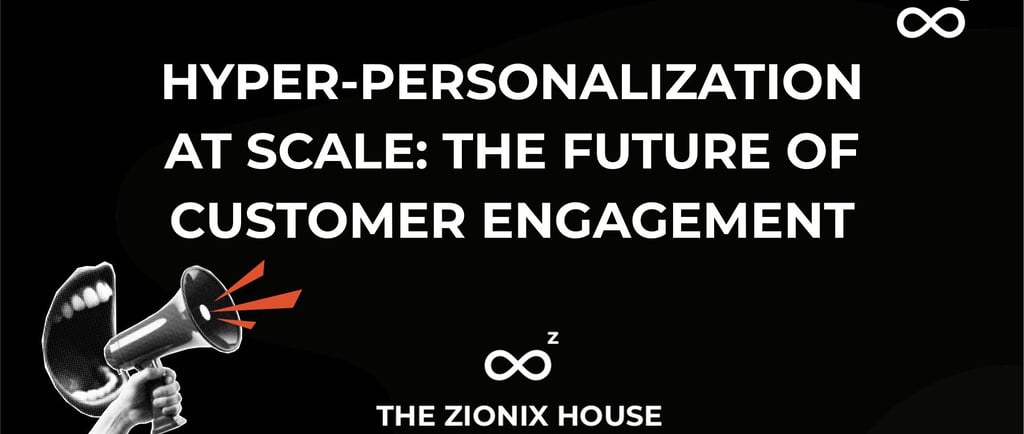Hyper-Personalization at Scale: The Future of Moment Marketing


The Evolution of Marketing: From Mass to Moment Marketing
Marketing has undergone a significant transformation over the decades, evolving from traditional mass marketing techniques to a more nuanced and contextual approach known as moment marketing. Historically, mass marketing was characterized by broad campaigns targeting large audiences with generic messages, aimed primarily at creating brand awareness. This strategy leveraged television commercials, print ads, and radio broadcasts to reach consumers en masse, often neglecting individual preferences and specific consumer needs.
However, as consumer behavior began to shift with the advent of the internet and mobile technology, marketers recognized the limitations of mass marketing methods. Consumers became more informed and selective, favoring personalized experiences that resonate with their immediate needs and preferences. This shift catalyzed the emergence of moment marketing, a strategy that aligns marketing efforts with the specific contexts in which consumers make decisions. Moment marketing emphasizes understanding consumer intent and providing relevant content at precisely the right time.
The essence of moment marketing lies in its capacity to engage customers in real-time, seamlessly integrating marketing strategies with the customer journey. By leveraging data analytics and real-time insights, brands can create tailored experiences that speak directly to the consumer's current context. This approach not only fosters deeper connections but also drives engagement and conversion rates.
The implications of adopting moment marketing are profound for brands. The need for agility and adaptability in marketing strategies becomes paramount, as brands must consistently monitor trends and shifts in consumer behavior. This requires marketers to be equipped with advanced tools and technologies that facilitate real-time response and allow for personalization at scale. Companies that can swiftly adjust their strategies will likely find a competitive edge in the fast-paced landscape of modern marketing.
Understanding Customer Intent and Context in Real Time
In the realm of hyper-personalization, comprehending customer intent and context in real time is pivotal for effective moment marketing. Brands can harness advanced data analytics and artificial intelligence (AI) technologies to obtain deep insights into customer behavior. By doing so, marketers can tailor their strategies to meet individual preferences and expectations, ultimately enhancing the customer experience.
Key factors influencing customer intent include location, previous interactions, and current engagement patterns. Location data reveals when and where a customer is most likely to make a purchase or engage with a brand, allowing for timely and relevant marketing messages. Previous interactions give brands a historical context of the consumer's preferences, enabling marketers to craft personalized experiences based on past behaviors. Furthermore, real-time engagement patterns, such as the actions taken on a website or social media platform, illuminate current interests and potential buying signals.
To effectively implement real-time data tracking, brands can leverage various tools and technologies. Customer Relationship Management (CRM) systems integrated with AI capabilities can monitor and analyze customer data instantaneously. Additionally, marketing automation platforms facilitate the delivery of personalized content based on behavioral triggers throughout the customer journey. Big data analytics platforms allow brands to process vast amounts of information, uncovering trends and patterns that inform marketing strategies. By employing these tools, businesses can refine their approach, ensuring messages are not only relevant but also timely.
Ultimately, understanding customer intent and context through real-time data analysis is essential for brands aiming at achieving hyper-personalization at scale. With a detailed comprehension of what customers seek and need, companies can align their marketing efforts with specific moments that resonate with their audience, driving engagement and fostering loyalty.
The Role of Human Creativity in Driving Hyper-Personalization
In today's competitive landscape, the synergy between human creativity and AI-driven intelligence is paramount for achieving hyper-personalization at scale. As brands endeavor to delineate themselves in a saturated market, the integration of authentic human insights into data-driven strategies plays an instrumental role in engaging customers on a deeper level. Creative minds are capable of crafting stories and content that resonate with individuals, while AI analyzes vast amounts of consumer behavior data to inform these creative processes.
Successful brands have exemplified this balance effectively. For instance, a leading online retailer harnessed the power of its data analytics team to uncover customer preferences and behavioral trends. By combining these insights with the creative prowess of its marketing department, the brand was able to develop tailored campaigns that highlighted personalized product recommendations. This approach not only increased conversion rates but also fostered a meaningful connection with customers, as they felt understood and valued.
Collaboration is crucial in this dynamic. Marketers can foster an environment where creative teams regularly engage with data analysts, ensuring that the narratives crafted are grounded in actual consumer insights. Workshops and brainstorming sessions can serve as platforms for both parties to share perspectives, leading to innovative ideas that are deeply informed by customer data. Furthermore, real-time feedback mechanisms can enhance this collaboration, allowing marketing teams to iterate and adapt campaigns based on immediate consumer responses.
Ultimately, the future of moment marketing hinges on the harmonious blend of creativity and data-driven decision-making. By prioritizing human creativity in tandem with advanced analytics, brands can enhance their hyper-personalization efforts, delivering content that is not only relevant but also resonates on an emotional level with their audience. This balanced approach will pave the way for more authentic consumer interactions and sustained brand loyalty.
The Future of Customer Experience Innovation: Leading the Charge
As the landscape of marketing evolves, the role of hyper-personalization in shaping customer experiences becomes increasingly critical. Brands that prioritize moment marketing strategies will meet customer expectations and drive loyalty and revenue. By leveraging data-driven insights, companies can create tailored experiences that resonate with individual preferences and behaviors, establishing deeper connections with their audiences.
Looking ahead, several trends in hyper-personalization are anticipated to reshape the marketing landscape. First, the integration of artificial intelligence (AI) and machine learning will facilitate more sophisticated data analysis, enabling brands to predict customer needs and preferences with unprecedented accuracy. This proactive approach not only allows for timely engagement but also empowers companies to deliver personalized content and offers that enhance overall satisfaction.
Additionally, the increasing reliance on real-time data will influence how brands interact with consumers. By harnessing data streams from various touchpoints, organizations can create seamless and responsive experiences that cater to customers on their terms. In an era where immediate gratification is expected, the ability to anticipate and respond to consumer needs will distinguish successful brands from their competitors.
Moreover, as privacy concerns and regulations grow, brands must navigate the delicate balance of personalization and consumer consent. Transparency and ethical data practices will not only help build trust but will also ensure compliance with evolving legal requirements. Organizations that adopt a customer-centric approach while prioritizing data integrity will set themselves up for success in the hyper-personalized marketing landscape.
In conclusion, the future of customer experience innovation lies in brands' ability to effectively implement hyper-personalization strategies. As emerging technologies continue to evolve, marketers must adapt their frameworks to create meaningful interactions that drive loyalty and revenue. By embracing these changes, forward-thinking brands will lead the charge in delivering transformative customer experiences that exceed expectations and foster enduring relationships.
Contact – The Zionix House
We’d love to hear from you! Whether you’re interested in collaborating, exploring our AI-driven marketing solutions, or simply want to learn more about how The Zionix House can help elevate your brand, our team is here to connect. Reach out to us with your questions, ideas, or project inquiries—we’re always excited to start meaningful conversations. You can contact us via email at info@thezionixhouse.com or connect through our social media channels. Let’s build the future of intelligent marketing together with The Zionix House.
